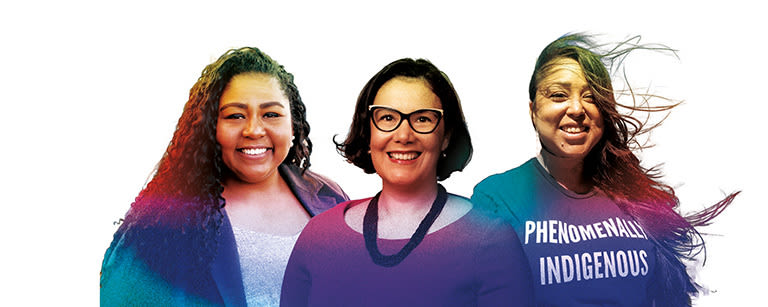These 3 Oregon Campaigners Are Claiming Political Space for All

From left: Candace Avalos, Jessica Vega Pederson, and Carina Miller
“The Year of the Woman” is an easy nickname for elections that help right the gender imbalance in DC, but in Oregon politics almost any recent year might qualify. Women hold the offices of governor and secretary of state; they make up half of the Oregon House and almost a third of the Senate. Even women who lost elections in 2020 are using their experience to lay the groundwork for what comes next, whether it’s another run for office or creating a world with fewer hurdles for candidates like them.
A lot has happened since August 2019, when Candace Avalos (above left) announced her run for Portland City Council. The coordinator of student government relations at Portland State University, Avalos was already part of the police-accountability-focused Citizen Review Committee when she kicked off her campaign, and has since cofounded the Black Millennial Movement and become a member of the city’s Charter Review Commission, all experiences she hopes to apply to another run for office after her council race loss to Carmen Rubio. “It’s no secret that politics in general is a very white-male-oriented space,” she says. “Being a woman of color in that space ... I’m going to be put up against a system that wasn’t designed to include me.”
First-time Oregon Senate candidate Carina Miller (right) may have lost to the incumbent in Novemer, but she won more votes than any Democrat in ages in District 30, which covers much of Central and Eastern Oregon. A member of the Confederated Tribes of Warm Springs, Miller is the chair of the Native American Caucus for the Democratic Party of Oregon, vice chair of Columbia Gorge Commission, and a cofounder of the nonprofit Unite Warm Springs, which aims to build political infrastructure in rural, Tribal communities. “I know that I’m going to run for office again,” she says. “We grew up out here in rural Oregon. That’s where our reservation will always be. We can’t continue to build power just in places where it exists; we have to work in places where it’s a little more difficult.”
Of course, victorious campaigns are building political infrastructure, too. Reelected last May as a Multnomah County commissioner, Jessica Vega Pederson (middle) kept campaigning through November 2020 in support of the Preschool for All county ballot measure. With that passed, Vega Pederson is helping to direct some of that energy to addressing obstacles to childcare.
These conversations, she notes, are more productive when the people having them reflect the whole community. “We need to have people [run for office] who have different experiences, because they prioritize and work hard on issues that haven’t always been at the forefront, like workplace policies that impact women, like racial equity policies and police reform issues that impact people of color,” she says. “We need all the voices at the table.”











